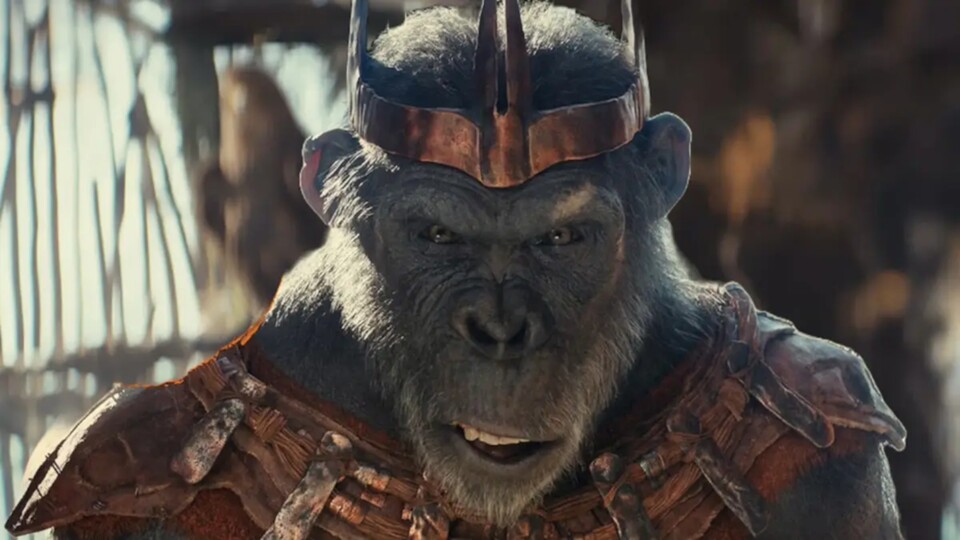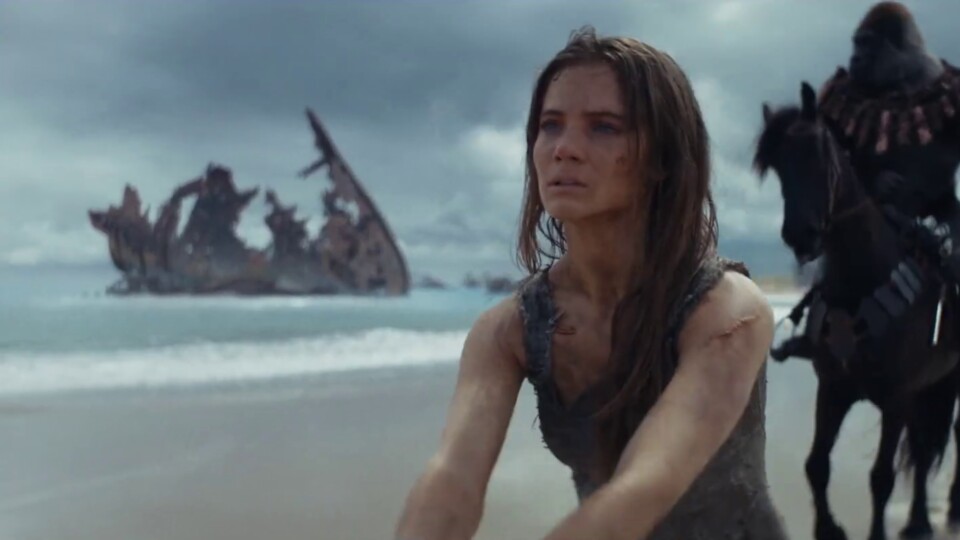
Villain Proximus (Kevin Durand) rules over the apes many years after Caesar. Image source: Disney
Advertisement
Planet of the Apes has always been popcorn cinema: science fiction, action and immersive effects. But Planet of the Apes has always been more than that – a commentary on current questions that concern us as a society.
Would you like a small example? The original film, released in 1968, was already an allegory both for the Cold War and for the discrimination against blacks in the USA.
The franchise's newest offshoot, Planet of the Apes: New Kingdom, follows in exactly these footsteps. It is also a popcorn cinema, as actor Kevin Durant says in an interview with my colleague Valentin:
We are definitely continuing the trend of films since 1968 containing some kind of commentary on our society and us as people. […] The reason people love the films is because they are big, entertaining sci-fi blockbusters that you want to see in the theater. But they are also intelligent and have something to say with their story.
Advertisement
Planet of the Apes and Artificial Intelligence
Durand takes up one topic in particular. Especially since the 2011 reboot Planet of the Apes: Prevolution can be found in the films a parallel between monkeys and artificial intelligence:
I think there's a really cool correlation there. There are the people who work in a lab to increase the intelligence of monkeys to cure Alzheimer's and the like – and then that intelligence grows beyond that of humans. It is very similar to our artificial intelligence and its exponential growth, which we did not expect to grow beyond our heads. I'm not saying AI will take us over, but the fear is there.


2:13
Planet of the Apes returns with New Kingdom, a featurette exploring the history of the series
Big danger AI: Where does science stand?
Since OpenAI released its language model GPT-3 to the public in November 2022, there has hardly been a topic that has been discussed as strongly among tech prophets, philosophers and CEOs as our future with, under or against AI.
Even experts disagree about how big the risk is that we will all be subjugated by artificial intelligence in the foreseeable future. Depending on who you ask, the words can Human extinction
and There is no reason for AI to dominate us
wants to fall.
The opposing opinions are similarly extreme Study by the Forecasting Research Institute out of. It brought together AI fearers, especially scientists, and AI skeptics, especially so-called super-predictors.
The former were experts in their field and saw the risk of an existential AI threat by 2100 at around 20 percent, the latter were far above average in other predictions in the past and saw the risk at just 0.12 percent, i.e. a little more as 1:1000.
A villain not so dissimilar to us
No matter how big the risk is: Towards the end of the interview, actor Kevin Durand draws a parallel between us humans and the film villain Proximus, who he plays. Because he is a narcissist and misguided in his ways, but:
He just wants to make sure that the monkeys continue on their steady path of evolution without ending up in cages. To do that, they need to make sure that these other guys [Anm. d. Red.: die Menschen] be held back and continue to clean their shoes, read books to them and not be given too much control.
He ends the part of the conversation with a joking threat to Valentin made in his role: he is no exception and as a human being he must expect to serve the monkeys.
Planet of the Apes: New Kingdom opened on May 8, 2024. You can see the film in your local cinema.